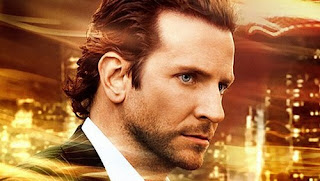Limitless, Sc-Fi and the Joy of Limits
Great to chat together at Wild Goose, Vic. I've been so over-shadowed by your productive writing of late, that I thought I should convert some of my notes from the Wild Goose film review into a blog post. So here goes...
At least three recent sci-fi films explore some of the edges of human neuroscience – one of my favourite topics. There was last year’s Inception and this year’s Source Code and Limitless. All three are interesting films worth seeing and all three are thought-provoking journeys that are worth discussing afterwards.
Before doing some of that discussing here, however, I have to get one thing off my chest. Despite the fact that recent, real discoveries in neuroscience raise fascinating questions and point to many more possibilities that could be developed in coming decades, all three of these films succumb to the temptation to stretch way beyond the possible. In other words they choose not to accept the limits of either reality or even remotely likely potential reality. Perhaps many don’t agree, but I think the best sci-fi films make you believe the worlds they are creating are possible. Even when they stretch scientific possibility, they sell you on what could be.
Inception and Source Code choose not to accept these limitations. Inception doesn’t even bother trying to create a realistic pathway into the dream intrusion and manipulation at the heart of the film. Source Code does do a good job on trying to sell you on possibilities through the bulk of the film but then slips into silliness at the end. (I admit that my charge of silliness is not fair. Very smart people seem to play with the idea of parallel universes. Personally, I find the concept logically and aesthetically unappealing, but perhaps this is just a blind spot and the billions of my other selves in other universes would think differently.) The result is an unsatisfying final ending to an otherwise intriguing film. Ending with the kiss would have been better, and showing some kind of lasting effect from the late reconciliation with his dad would have been even better (because that at least would touch on the real-life miracle of how memories can be healed with wide-ranging effects). 

Limitless, ironically, does a better job of accepting its limits. The benefits of NZT-48 are conceivable if somewhat exaggerated (and the NZT advertizing campaign demonstrates this). In spite of the fact that the film encourages the unscientific myth that we only use a small fraction of our brain, it does seem realistic that drugs have the potential to significantly enhance certain cognitive skills. It also does a great (if somewhat predictable) job of showing the typical biological price of cheating. The ending, which I certainly hope is meant to bother or at least unsettle us, is much less predictable and forces us to look more deeply at the tension between morality and our drive to exceed limits.
Wendell Berry, who I take to be one of the most important prophets of our day, writes that, in most cases, hope comes through limits – through accepting them and working with them, not striving to push past them. I appreciated the way that Limitless pushed me into a new appreciation of that truth. I’m just a little afraid for those who thought it was a happy ending. (***+ for Limitless; *** for Source Code and Inception – so two mugs up all around.)

Comments
Post a Comment